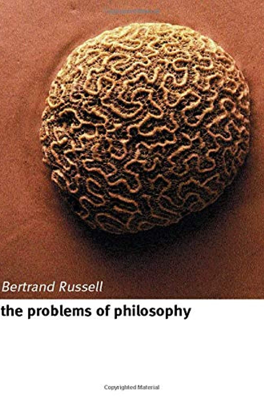Summary
Bertrand Russell explores the fundamental questions of philosophy, emphasizing the distinction between appearance and reality. He discusses how our senses provide perceptions (sense-data) that don't necessarily paint a true picture of the external world. Through examples like the table, he shows that what we perceive is often a personal, subjective construction rather than an objective reality. This initiates a deep inquiry into whether physical objects exist independently of our perception.
Philosophical viewpoints, such as those from Bishop Berkeley and Leibniz, challenge the independence of physical objects, proposing they might exist primarily as ideas or concepts within minds. Russell discusses appearance versus reality across various philosophical dimensions, including the concept of matter in physical science, the nature of sense-data, and the ongoing tension between empirical evidence and metaphysical interpretations.
Central to his inquiry is the examination of knowledge types—namely, knowledge by acquaintance and knowledge by description. Russell differentiates between direct, experiential knowledge of objects and indirect knowledge gleaned from descriptions tied to sense-data. He argues that while many of our everyday beliefs about the physical world and other minds are based on a natural assumption of an external reality, these beliefs are not backed by absolute certainty but are rather conclusions drawn from the simplest and most coherent explanations of our sense-data.
Furthermore, Russell delves into principles that underlie logical and ethical reasoning, suggesting that certain truths, especially those pertaining to mathematics and ethics, are understood a priori—known independently of sensory experience. He weighs the reliability of logical principles and inductive reasoning, which help form the basis for most empirical knowledge, despite their inherent limitations.
In his treatment of philosophical thought, Russell critiques the sweeping metaphysical claims made by philosophers like Hegel, stressing a more moderated, empirical approach to understanding reality. He posits that philosophy's value lies not in providing definite answers but rather in its ability to clarify questions and broaden our understanding of possible realities, thus freeing thought from prejudice and expanding intellectual horizons.
Ultimately, Russell underscores the value of philosophy in stimulating a critical, expansive outlook on life, promoting intellectual liberation, and cultivating a deeper connection with the broader universe—an invaluable pursuit that enriches both the mind and soul despite offering no definitive conclusions on the nature of reality.
Per-chapter summary
- Appearance and Reality
- The Existence of Matter
- The Nature of Matter
- Idealism
- Knowledge by Acquaintance and Knowledge by Description
- On Induction
- On Our Knowledge of General Principles
- How a Priori Knowledge Is Possible
- The World of Universals
- On Our Knowledge of Universals
- On Intuitive Knowledge
- Truth and Falsehood
- Knowledge, Error, and Probable Opinion
- The Limits of Philosophical Knowledge
- The Value of Philosophy
